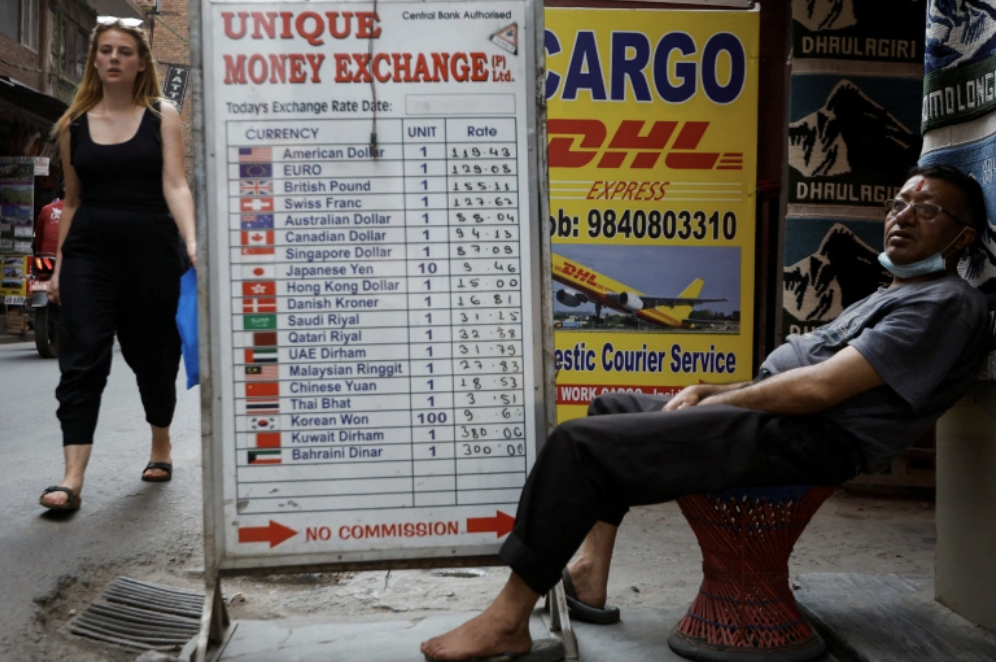Nepal Struggles To Maintain its Forex Reserves
A Nepali man sits in front of the board displaying foreign money exchange. Photo: REUTERS/Navesh Chitrakar
In light of the country’s deteriorating economy, the Nepalese government requested last week that its citizens abroad deposit money in local banks to maintain its foreign exchange reserves.
From July of last year to March of this year, Nepal’s foreign exchange reserves dropped more than 18%. A quarter of Nepal’s economy relies on funds from overseas workers, which fell to 3% around the same time period.
Tourism, another significant contributor to Nepal’s economy, has been unable to provide any substantial income since the start of the COVID-19 pandemic. While tourism is gradually increasing, its numbers have not entirely reached what they were prior to 2020.
The Immigration Office in Nepal recently announced that individuals traveling to Nepal would be required to carry $200 in cash to pay for their on-arrival visa at the airport. Despite public disapproval and social media outcry, The Immigration Office added to its verdict, insisting that due to the availability of only one ATM machine at the airport, there would be large gatherings and technical difficulties that would further complicate the visa process. Visitors using electronic forms of payment such as Visa Card, Mastercard, and others could have their payment declined as well.
As a response to its economic troubles, Nepal intends to loan $150 million from the World Bank after accepting $659 million from the U.S. States Agency for International Development.
Finance minister Janardan Sharma denied that Nepal is struggling with an economic crisis, explaining that Nepali citizens abroad have the advantage of earning 6-7% interest if they deposit their savings. Sharma encouraged Nepalis to deposit as much money as they can to prevent the liquidity constraints from getting worse.
Nepal’s Central Bank, Nepal Rastra Bank, went ahead and reduced the import of petroleum products, alarming the Nepal Oil Corporation who feared the lack of petroleum could severely affect the country. Nepal Oil Corporation has increased fuel prices 18 times in the past year as a result of the strain on the economy. In a statement, Nepal Rastra Bank justified its decision by explaining that Nepal has a limit of foreign currency reserves, and these reserves are responsible for importing petroleum and other goods. Nepal cannot afford to import a large number of products.

